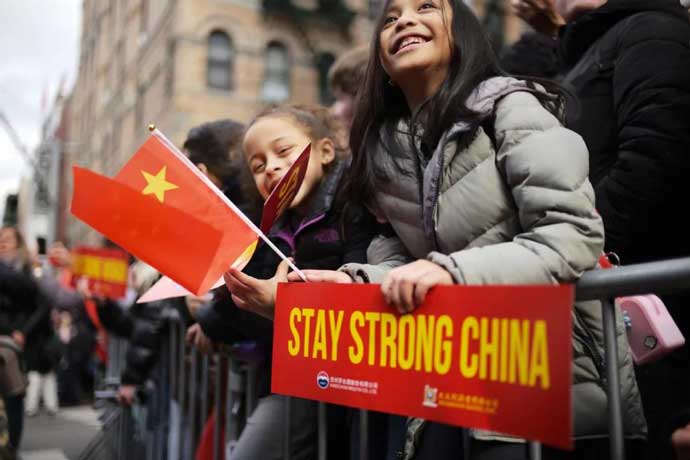Ban Ki-moon, Former Secretary-general of the United Nations
Oct 09, 2020
COVID-19 has shone a light on the acute vulnerabilities of a deeply interconnected world. No country, regardless of its size, wealth, or technological sophistication, can tackle this crisis alone.

Zhang Yun, Professor, School of International Relations, Nanjing University
Oct 08, 2020
The post-pandemic era has given rise to new thinking around the world. There is ample reason to believe that the post-pandemic era will bring neither a new cold war of confrontation nor a dark age of international friction.
He Yafei, Former Vice Minister of Foreign Affairs
Oct 08, 2020
Painful lessons have been learned worldwide, and they should not be squandered. It’s time to rebuild a global health system that will work in the crises yet to come.
Joseph S. Nye, Professor, Harvard University
Jul 09, 2020
Many analysts argue that the liberal international order ended with the rise of China and the election of US President Donald Trump. But if Joe Biden defeats Trump in November’s election, should he try to revive it? Probably not, but he must replace it.
Andrew Sheng, Distinguished Fellow at the Asia Global Institute at the University of Hong Kong
Xiao Geng, Director of Institute of Policy and Practice at Shenzhen Finance Institute, Chinese University of Hong Kong
Jul 02, 2020
Despite former US National Security Adviser John Bolton’s juicy revelations about Trump’s conduct of foreign policy, his book does little to answer the fundamental question facing the US: Is its current foreign-policy muddle Trump’s fault, or the result of something deeper and more structural?

Wu Zhenglong, Senior Research Fellow, China Foundation for International Studies
Jul 02, 2020
The pandemic has become a catalyst that’s driving people to reflect on the whole concept of globalization. It may be that the system we have lived with for 40 years has reached the end of its cycle.
Lucio Blanco Pitlo III, President of Philippine Association for Chinese Studies, and Research Fellow at Asia-Pacific Pathways to Progress Foundation
Jun 22, 2020
Three directions are possible for a post-pandemic China that is reassessing its domestic and international goals. Whichever direction it chooses will have implications beyond its borders.
Sun Chenghao, Fellow, Center for International Security and Strategy of Tsinghua University; Munich Young Leader 2025
Jun 13, 2020
The notion of persuading countries in an expanded G7 to adhere to the U.S. line for containing China has far too much working against it. The schism between America and Europe is only widening under the unpredictable impulses of the current U.S. president.

He Yafei, Former Vice Minister of Foreign Affairs
Jun 10, 2020
The outbreak of the coronavirus has changed some fundamental things in the world order. Post-pandemic global governance will likely feature significant fragmentation. And it could unfold in a variety of ways.

Zainab Zaheer, Development Consultant
May 19, 2020
China has increased its global outreach during this pandemic by sending critical medical supplies and financial aid to countries in need. The motive behind such diplomacy aside, China is providing some desperately-coveted help in the eleventh hour and saving lives around the world.
Back to Top

- China-US Focus builds trust and understanding between the U.S. and China through open dialogue among thought leaders.
- Our Offerings
- Topics
- Videos
- Podcasts
- Columnists
- Research Reports
- Focus Digest
- Stay Connected
-
Thanks for signing up!
- Get the latest stories from China-US Focus weekly.